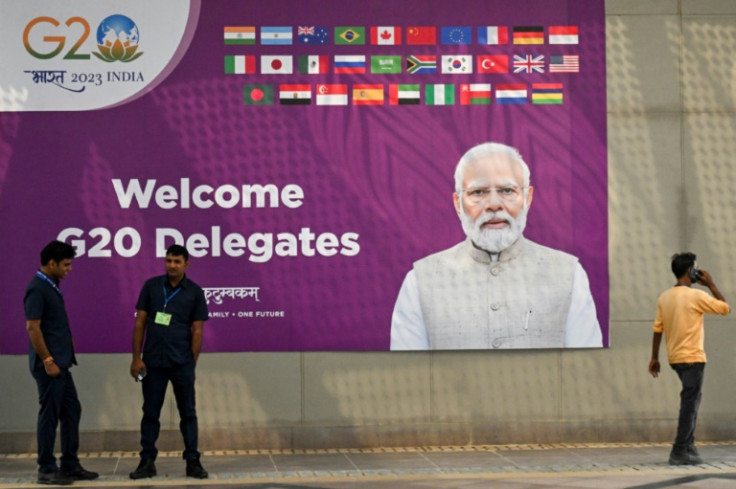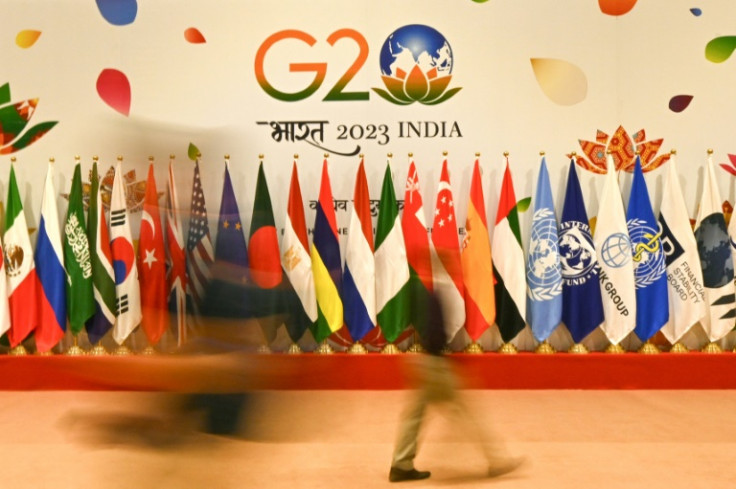Divided G20 head to India with eyes on Ukraine and climate
Divided G20 leaders will descend on New Delhi from Friday, with host Prime Minister Narendra Modi seizing a chance to occupy the geopolitical centre stage and hammer home India's growing diplomatic clout.

Divided G20 leaders will descend on New Delhi from Friday, with host Prime Minister Narendra Modi seizing a chance to occupy the geopolitical centre stage and hammer home India's growing diplomatic clout.
Around the summit table, there will be a few notable absences -- with Chinese leader Xi Jinping and Russia's Vladimir Putin both opting to stay at home.
Deep disagreements on Russia's war in Ukraine, the phasing out of fossil fuels and debt restructuring will make any agreements at the end of the two-day meeting difficult to come by.
But sensing an opportunity to burnish his credentials as a statesman ahead of a re-election tilt early next year, Modi has thrust himself into any void left by Xi or Putin.
Group of 20 motorcades roaring in from New Delhi's international airport -- named after once all-powerful ever-present prime minister Indira Gandhi -- can be in no doubt who is the boss today.
From posters, placards and billboards, Modi's image gazes down as the very public face of the two-day summit.
In some, Modi simply welcomes delegates. In others, he delivers domestically bankable slogans about development, jobs and "giving voice to the global south".
Sumedha Dasgupta, senior Asia analyst with the Economist Intelligence Unit, believes that "India will try to be a credible voice that can facilitate dialogue between the global north and south."
India, fresh from celebrating the cementing of its position as a space power by landing a craft on the Moon in August, has portrayed its hosting of the G20 as a coming-of-age moment that makes it a key global player.
On Thursday, Modi repeated his desire to expand the bloc into the "G21" with the "inclusion of the African Union as a permanent member".
Modi has tried to use the G20 to build consensus among key economies to reform global multilateral institutions like the United Nations to give a greater say to developing countries such as India, Brazil and South Africa.
But with China represented by Premier Li Qiang rather than Xi, it is far from clear what, if anything, can be agreed.
Representatives from 20 leading economies are gathering in the Indian capital at a time of intense trade tensions between the world's two largest economies, China and the United States.
The grouping is also split over Russia's invasion of Ukraine, with many developing members more concerned with high grain prices than joining diplomatic condemnations of Moscow's behaviour.
Modi's efforts to urge G20 leaders to sidestep deep divisions to address critical global issues -- including global debt restructuring and commodity price shocks following Russia's invasion -- have been unsuccessful in ministerial meetings ahead of the summit.
A G20 energy ministers' meeting in July failed to agree on a roadmap to phase down the use of fossil fuels -- or even mention coal, the dirty fuel that remains a key energy source for economies like India and China.
Xi's absence will also impact Washington's bid to keep the G20 the main forum of global economic cooperation, and its efforts to make a financing push for developing countries.
"Without China being on board... issues may not really see the light of day or reach any logical conclusion," said Happymon Jacob, a politics professor at India's Jawaharlal Nehru University.

© Copyright AFP 2026. All rights reserved.





















